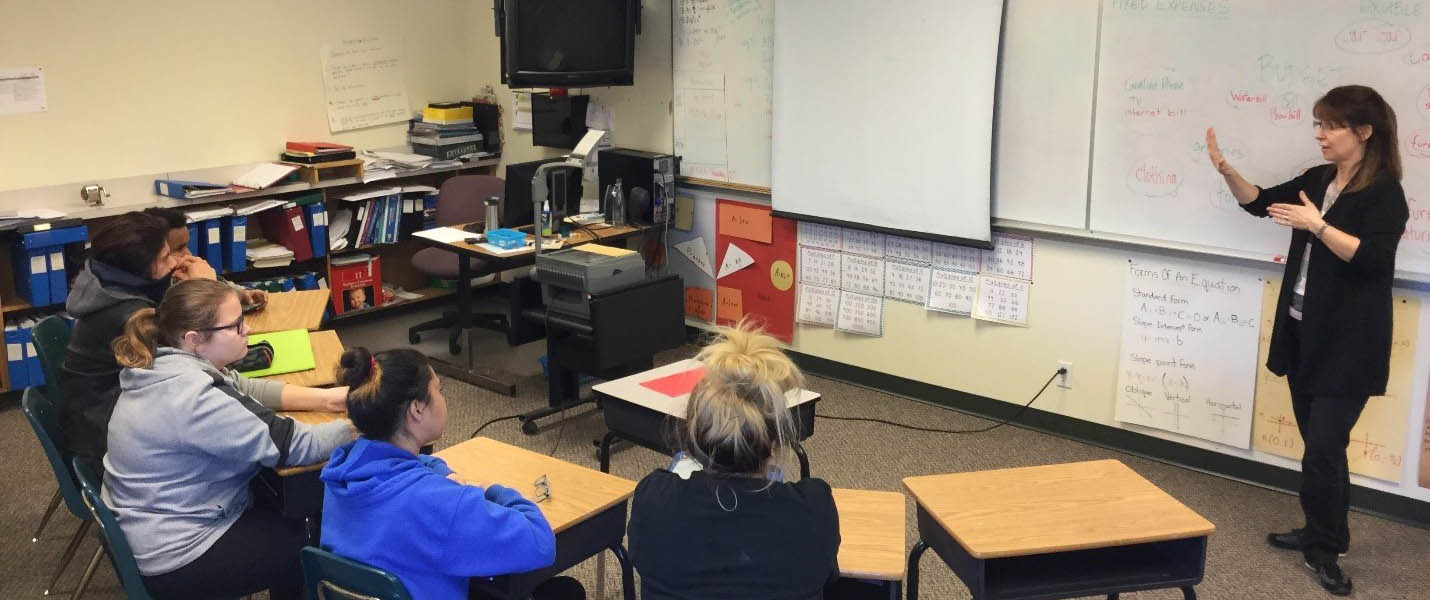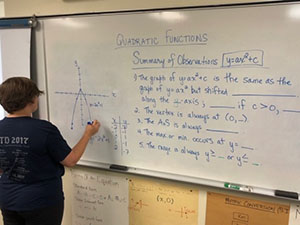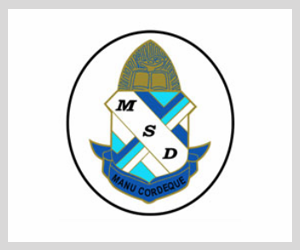Manitoba School for the Deaf (MSD)
Senior Years

MSD offers Senior Years programming for Grades 9 to 12. The school follows the standard provincial curriculum developed by Manitoba Education. MSD strives to offer a variety of courses to meet the needs, interests, and abilities of students. Every year, the principal meets with individual students to create their schedules. Student interests are taken into account when options courses are selected. Students must achieve 30 credits, or more, during their Grades 9–12 years.
Credit System

Beginning in Grade 9, students accumulate credits for courses completed each year. A total of 30 credits are required for graduation, some of which are compulsory and some of which are electives. Students are able to register for both half- and full-credit courses. Credits are earned when students achieve a passing grade of 50% in a course. Information can be gained from course numbers:
- The first number indicates the grade level for the course:
- Grade 9 – 1
- Grade 10 – 2
- Grade 11 – 3
- Grade 12 – 4
- The second number indicates:
- Provincially approved full-credit course – 0
- Provincially approved half-credit course – 5
- Approved school-initiated course – 1
- The letter following the second number indicates the type of course:
- Foundations – F
- Specialized – S
- General – G
So, for example, Science 20F indicates a Grade 10 (2), full credit (0), provincially approved foundations course (F) in Science.
Note that prerequisites for programs at post-secondary institutions may differ from graduation requirements. It is important to seek accurate information regarding course requirements for specific programs.
L.I.F.E Program
The MSD L.I.F.E. Program (Learning Independence in a Functional Environment) was developed for students in the Senior years who require an individualized program.
The focus of the program is on functional skill development through themed units. Development of language and social skills is emphasized through peer interactions and real life situations.
Each child is an individual. Students in the Life Program have many different cognitive, physical, medical, communication and social needs. There is no one set of traits shared by all. The Life Program provides the appropriate environment and time in which to practice skills, the flexibility to address individual differences, and the support students need to help them become as independent as possible while becoming contributing members of society once they leave the Manitoba School for the Deaf.
The Life Skills Program follows a curriculum which is used in the classroom and in community-based settings. The curriculum focuses on key basic skills needed for students to transition into full-supported, low-supported or independent functioning within the community where each individual will live, learn, work and play. These basic skills around which the Life Program is based in order for each student to reach his/her full potential include:
- Functional Academics/Functional Communication
- Preparation for Adult Life (community-based, vocational-based, transition planning)
- Home Living Skills
- Personal Living Skills
- Social Skills
- Physical Development and Recreation Skills

- MSD Open House Poster

- MSD Calendar
- MSD Parents Calendar

- MSD Handbook

- Mission Statement

- Educational Resources
- Educational Research

- Links
- Forms
-
Upcoming Events
-
September 1: Labour Day September 2: Meet the Teacher 3 – 6 pm September 3: First day of school 9 am and Bus Ridership 3 pm September 17: Gr. 6 & 8 Immunization 9:30 am September 17: Hot lunch program September 19: Staff PD Day – (no school) Sep. 21 - 26: International Week of Deaf Peoples September 29: Staff Admin day (No school) September 30: National Day for Truth & Reconciliation (No school)